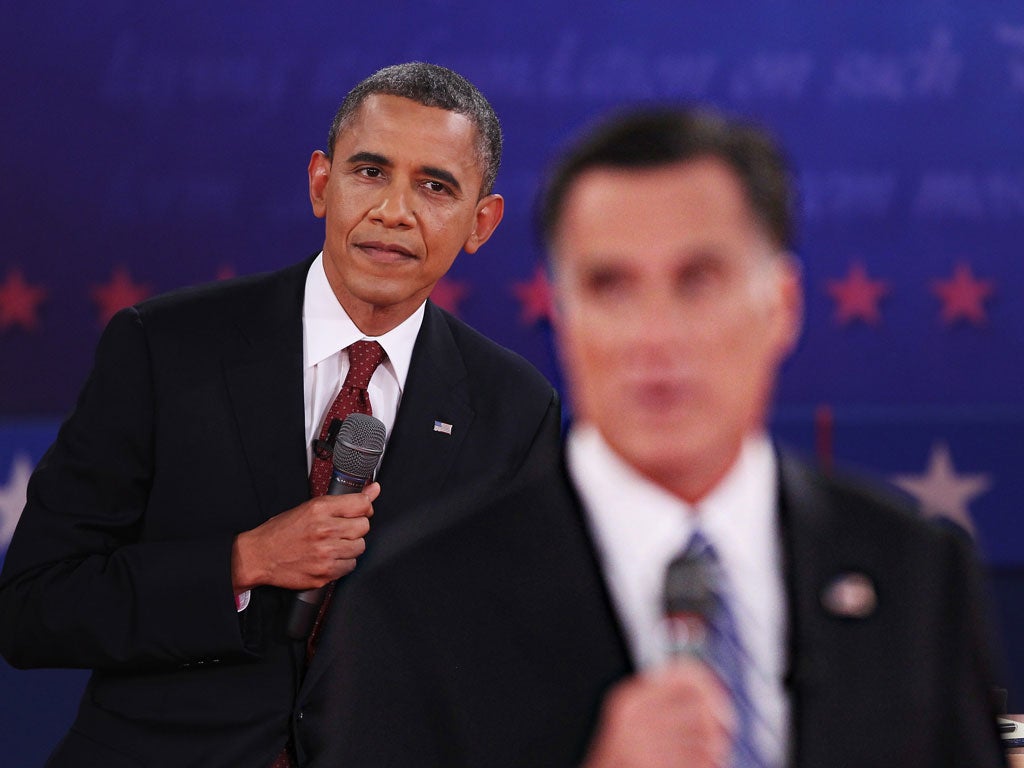Presidential polls tell two different stories – but which is true?

Your support helps us to tell the story
From reproductive rights to climate change to Big Tech, The Independent is on the ground when the story is developing. Whether it's investigating the financials of Elon Musk's pro-Trump PAC or producing our latest documentary, 'The A Word', which shines a light on the American women fighting for reproductive rights, we know how important it is to parse out the facts from the messaging.
At such a critical moment in US history, we need reporters on the ground. Your donation allows us to keep sending journalists to speak to both sides of the story.
The Independent is trusted by Americans across the entire political spectrum. And unlike many other quality news outlets, we choose not to lock Americans out of our reporting and analysis with paywalls. We believe quality journalism should be available to everyone, paid for by those who can afford it.
Your support makes all the difference.According to Real Clear Politics, Mitt Romney is, on average, up by one point in the polls. According to both Nate Silver and Intrade, President Barack Obama has a better than 60 per cent chance of winning the election. I think it's fair to say that the election is, for the moment, close. But not according to Gallup. Its seven-day tracking poll shows Romney up by seven points with likely voters. But he's up by only one point with registered voters.
It gets weirder. Dig into the poll, and you'll find that in the most recent internals Obama is winning the West (+6), the East (+4) and the Midwest (+4). The only region he's losing is the South – by 22 points. That's enough, in Gallup's poll, for him to be behind in the national vote. But it's hard to see how that puts him behind in the electoral college.
If Gallup is right, then that looks to me as if we're headed for an electoral college/popular vote split. I spoke to Frank Newport, editor-in-chief of Gallup, to ask him if I was missing something. He said I wasn't. "That's certainly what it looks like," he said. But Newport was cautious in interpreting his numbers. Gallup's poll showed Romney gaining ground even after the second debate. But Newport didn't see it like that. Remember, he warned, it's a seven-day poll. "I think we're still seeing leftover positive support for Romney, and I don't think we're seeing impact yet from the second debate," he said.
What you think is going on in the race depends on whether you think the electorate will ultimately look more like Gallup's "likely voter" model, where the race is a blowout, or all registered voters, where it's a dead heat. "The likely voters model takes into account changes in the response to questions about how closely they're following and how enthusiastic they are," said Newport. "It's not just capturing underlying movement. It's representing changes in enthusiasm."
That sounds like a model that would tend to overstate the effects of major events that favoured one candidate or the other. Newport agreed. "I wouldn't use the word 'overstate'," he said. "But it would be very sensitive to changes in enthusiasm. The Denver debate clearly had an impact on Romney's people. I think your insight is correct there. Whether we see a dulling of that over the next several days is what I want to see."
Ezra Klein is a columnist at 'The Washington Post'
Join our commenting forum
Join thought-provoking conversations, follow other Independent readers and see their replies
Comments